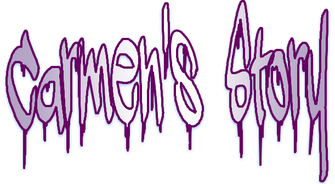
In 1984, a group named UTFO created an infamous hit “Roxanne, Roxanne” about a girl too stuck-up to give them any of her time. I was 13 years old. When boys tried to step to you back then, they often took on that set of identities from UTFO--- Kangol Kid, the Educated Rapper, or Doctor Ice--- with the same kind of disrespect built into the song. Here is their infamous song, “Roxanne, Roxanne”:
annoying, and offensive, even to a 13-year old like me. I must admit though: I don't really remember UTFO at all. What I remember, growing up all the way west in Ohio, was a 14-year old from Queensbridge projects: Roxanne Shante. As the story goes, UTFO canceled its appearance on a show promoted by Marley Marl and Mr. Magic, an unthinkable and arrogant thing to do to your friends in the world of Hip Hop especially in those early days. Legend has it that Roxanne Shante was on her way to the laundry, washing clothes for her mother who was at work and took breaks between cycles to record this song in one take in Marley Marl’s apartment. In her rhyme, she becomes Roxanne--- Roxanne Shante--- and disses UTFO in a way they never fully recovered from. As a 13-year old, doing my share of the same daily chores, this was someone who I saw worth emulating. Every girl I knew could recite these lyrics and it infuriated the boys our age. To learn lyrics like this took real work too. For the most part, Hiphoppers like Roxanne Shante were played for only a few hours on the radio station where I grew up, certainly not all day. You waited until that hour came and taped the show on a boombox using a cassette tape. Then you played that cassette tape over and over until the ribbon wore out. That’s how we all became Roxanne Shante--- an alternative version of girlhood/womanhood where defending yourself, refusing subjugation, and helping your workingclass/single mom would become the makings of everyone's sheroe! Welcome to Hip Hop Feminism!
|
To the Students
|
Your Readings
Please see the syllabus for the writing assignment. Here are your choices (click the link and you will be taken to the article):
- Amoeblog: “Homo-Hop’s Role within Hip-Hop: Amoeblog’s Interview with Juba Kalamka” (July 7, 2009)
- Dionne Bennett: "How Hiphop Culture Makes Feminism Work" (2013) ***
- Alisa Bierria: "'Where Them Bloggers At?': Reflections on Rihanna, Accountability, and Survivor Subjectivity" (2010-2011)
- Ruth Nicole Brown: excerpt from Hear Our Truths: The Creative Potential of Black Girlhood (2013)
- Andreana Clay: " 'Like an Old Soul Record': Black Feminism, Queer Sexuality, and the Hip-Hop Generation Author(s)" (2008)
- Aisha Durham, Brittney Cooper, and Susana Morris: "The Stage Hip-Hop Feminism Built: A New Directions Essay" (2013)
- Himanee Gupta-Carlson: "Planet B-Girl: Community Building and Feminism in Hip-Hop" (2010)
- Shani Jamila: "Can I Get a Witness: Testimony from a Hip Hop Feminist" (2002)
- Treva Lindsey: “'One Time for My Girls': African-American Girlhood, Empowerment, and Popular Visual Culture" (2013)
- Treva Lindsey: "Let Me Blow Your Mind: Hip Hop Feminist Futures in Theory and Praxis" (2015)
- David J. Malebranche: " 'Coming Out' To Cash?: Frank Ocean and Social Progression" (2012)
- Joan Morgan: "strongblackwomen" (1999) (from When Chickenheads Come Home to Roost: My Life as a Hip Hop Feminist)
- Marcyliena Morgan: "Hip-Hop Women Shredding the Veil: Race and Class in Popular Feminist Identity" (2005)
- Whitney Peoples: "'Under Construction': Identifying Foundations of Hip-Hop Feminism and Exploring Bridges between Black Second-Wave and Hip-Hop Feminisms" (2008)
- Layli Phillips, Kerri Reddick-Morgan, and Dionne Patricia Stephens:"Oppositional Consciousness within an Oppositional Realm: The Case of Feminism and Womanism in Rap and Hip Hop, 1976-2004" (2005)
- Gwendolyn Pough: "Love Feminism but Where's My Hip Hop: Shaping a Black Feminist Identity" (2002)
- Gwendolyn Pough: "I Bring Wreck to Those Who Disrespect Me Like a Dame: Women, Rap, and the Rhetoric of Wreck" (in Check It While I Wreck It: Black Womanhood, Hip Hop Culture, and the Public Sphere from 2004)
- Gwendolyn Pough: "Hip-Hop is More Than Just Music to Me: The Potential for a Movement in the Culture" (in Check It While I Wreck It: Black Womanhood, Hip Hop Culture, and the Public Sphere from 2004)
- Elaine ("Dr. E") Richardson: "Developing Critical Hip Hop Feminist Literacies: Centrality and Subversion of Sexuality in the Lives of Black Girls" (2013)
- Elaine ("Dr. E") Richardson: "`She Was Workin Like Foreal': Critical Literacy and Discourse Practices of African American Females in the Age of Hip Hop" (2007)
- T. Denean Sharpley-Whiting:"'I See the Same Ho': Video Vixens, Beauty Culture, and Diasporic Sex Tourism" (in Pimps Up, Ho's Down: Hip Hop's Hold on Young Black Women from 2007)
- L.H. Stallings: “BITCH: The Death of Wifeable Women and a Queer Intervention” (a section of “Representin’ for the Bitches: Queen B(?) in Hip-Hop Culture” from 2007)
- Greg Thomas: excerpt from “Orals … Heads … Genius: The Power, Knowledge and Pleasure of Hard Core” (in the book, Hip-Hop Revolution in the Flesh: Power, Knowledge, and Pleasure in Lil’ Kim’s Lyricism from 2009)
- Mark Wilson: Post-Pomo Hip Hop Homos: Hip-Hop Art, Gay Rappers, and Social Change (2007)
